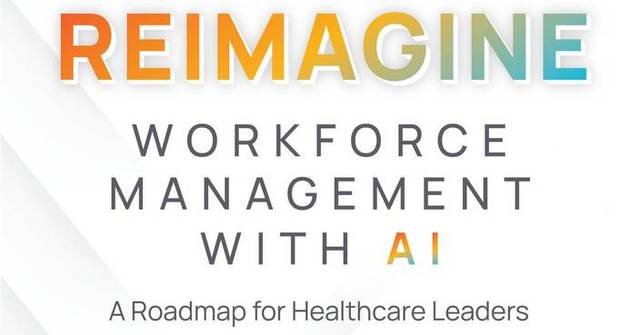
With healthcare workers in high demand across Europe—now is the perfect time to study for a career in the field. Below is a breakdown of 9 top programs in Healthcare Management across Europe
Business school provides an excellent environment for studying healthcare management, offering the critical skills and business acumen needed to thrive in the industry. As Professor Sue Dopson, deputy dean of Oxford Saïd, explains, “Business education is a great option for current and future healthcare managers, helping them navigate the paradoxes and challenges of an increasingly complex industry.”
Whether you want to move into the sector, step up to a managerial role in a healthcare career, or further hone healthcare management leadership skills, we highlight nine top healthcare management master’s programs* available at European business schools to suit all levels of experience.
*The programs listed are ordered randomly and not a ranking.
1. MSc in Global Health Management, Imperial College Business School

Considering the institution’s close ties with healthcare, through the Imperial College Healthcare NHS Trust, it is no surprise that the prestigious London business school offers an MSc in Global Health Management.
This specialized master’s is designed to empower future healthcare leaders, and aims to equip students with the knowledge needed to tackle the modern challenges impacting global healthcare ecosystems. Offering specializations in Innovations & Entrepreneurship, Management, or Economics & Data, the degree also provides students with the flexibility to tailor their path.
Aimed at candidates who want to improve healthcare systems, the course seeks individuals who are committed to making a difference.
“Our MSc in Global Health Management programme is designed for those passionate about shaping the future of global health. We’re looking for individuals who are committed to improving health ecosystems worldwide,” says Professor Marisa Miraldo, academic director of the MSc in Global Health Management at Imperial College Business School.
2. Health MBA and Executive Health MBA, Aalto University

The Aalto Health MBA and Aalto Health Executive MBA programs consist of two parts: the Healthcare Management Education Program, followed by the MBA or EMBA.
By combining the two, Aalto aims to equip students with the skills and network necessary for success in healthcare management.
Developed in collaboration with the Finnish Medical Society Duodecim, the Healthcare Management Education Program is focussed on the key challenges in Finland’s healthcare sector, such as pressures from an aging society, the interaction between public and private organizations, and addressing patient needs.
“Healthcare leaders must understand the challenges arising from these pressures and respond to development needs within their organizations,” says Pauliina Pellinen, solutions director at Aalto University Executive Education.
3. MSc in Global Healthcare Leadership, University of Oxford Saïd Business School

Led in collaboration with experts from the Nuffield Department of Primary Care Health Sciences, the MSc in Global Healthcare Leadership at the University of Oxford Saïd Business School is designed to equip experienced leaders with the skills needed to drive effective change in the industry.
Professor Kamal Mahtani, director of the MSc in Global Healthcare Leadership, highlights the transformative and inspiring nature of the program:
“Our participants leverage their expertise, newly acquired skills, and peer insights to address some of the most complex challenges in global healthcare, using their knowledge to make a difference in their own organizations.”
4. MBA in International Healthcare Management, Frankfurt School of Finance & Management

The MBA in International Healthcare Management at Frankfurt School of Finance & Management (FSFM) is tailored for working healthcare professionals. The course requires an academic degree, at least three years of post-graduate work experience, and a relevant background in healthcare.
Earning an MBA in International Healthcare Management from FSFM can equip students with the business acumen and integrity needed to lead in a globalized healthcare sector. Annette Wright, programme director of the MBA in International Healthcare Management at FSFM, emphasizes this:
“The business of health is unique due to the direct impact on human life, the high degree of regulation of the sector, and the complexity of organisations providing healthcare.
This environment requires healthcare managers capable of operating efficiently in rapidly changing environments.
“A business education is essential for healthcare leaders, ensuring they are well-equipped to deliver quality care and ultimately improve the health outcomes of the populations they serve.
“It also provides fundamental training in quality management and process improvement, which is critical in an environment where technological advancements, such as AI, and medical innovations are creating a constantly changing landscape,” she adds.
5. Master’s in International Healthcare Management, Economics and Policy, SDA Bocconi School of Management

Situated in the heart of Milan, SDA Bocconi School of Management offers a one-year full-time Master’s program in International Healthcare Management, Economics, and Policy (MIHMEP). This unique program combines management studies with health economics and policy, as well as public health.
Directly linked to the school’s Centre for Research on Health and Social Care Management, where faculty conduct research on innovations in health sectors globally, the master’s provides students with a wealth of up-to-date knowledge.
“Learnings from the Centre are continuously transferred to the classes, ensuring that lessons, topics, case studies, and exercises are always updated,” says Viviana Mangiaterra, director of the MIHMEP at SDA Bocconi in Milan.
6. Master’s in Leadership and Management in Health, Kingston Business School

With the option to enroll in a one-year certificate, two-year diploma, and later upgrade to the part-time online Master’s in Leadership and Management in Health, Kingston Business School in the UK offers students flexibility, a good work-life balance, and the ability to choose the qualification most relevant to their career goals.
“Our program offers ambitious practitioners the opportunity to develop their management skills in a flexible manner, in preparation for advancement in their profession,” says Graham Walker, course leader for MSc in Leadership and Management in Health.
Additionally, culminating in an individual dissertation on a topic of the student’s choice, the master’s program allows students to expand on their personal interests in the industry.
7. Executive MBA in Life Sciences and Healthcare Management, WU Executive Academy

Recognizing that the healthcare industry is constantly evolving, the program at WU Executive Academy is designed with the future in mind, ensuring students are prepared for long, successful careers in the field. Jürgen Willems, Professor of Public Management and Governance in the Department of Management at WU Executive Academy, emphasizes this:
“As part of our Life Science & Healthcare Management EMBA, we keep the curriculum future-focused. We encourage our cohort to continuously consider the unknown variables that may emerge in the future—and why.”
8. MBA in Healthcare Management, Sheffield Business School

Conducted fully online, the MBA in Healthcare Management course delivered by Sheffield Business School, part of Sheffield Hallam University, offers flexibility that allows individuals in the healthcare sector to apply, regardless of their schedule or location.
“It provides flexibility and access to applied online learning at your own pace, along with the opportunity to network and share ideas and experiences with people around the world. Working professionals who are keen to study and advance their management careers in the healthcare sector but are unable to attend on-campus courses due to competing demands and commitments should apply,” says Dr Cindy Wang-Cowham, the Online MBA course leader at Sheffield Business School.
Furthermore, the flexibility of the course enables students to apply their learning to their day-to-day roles, allowing them to put what they’ve learned in the virtual classroom into action and see how their knowledge operates in real-world healthcare scenarios.
9. Master Strategist Day, INSEAD

Not a master’s per se but at the world’s largest graduate business school, with its founding campus near Paris, France, INSEAD offers a Master Strategist Day (MSD) for its MBA students as part of its Healthcare Management Initiative. In collaboration with not-for-profit organizations, the event teaches students to tackle real-world strategic challenges faced by social enterprises, often in healthcare.
Guided by senior consultants, students analyze industry dynamics and develop actionable strategies for organizations addressing healthcare access and delivery. Ridhima Aggarwal, Salmon and Rameau Director for INSEAD’s Healthcare Management Initiative, notes that many students use the experience as a springboard for future endeavors:
“Many continue through the Business as a Force for Good Practicum or internships, gaining deeper field experience and applying their skills in social impact settings, such as healthcare management.”
link





